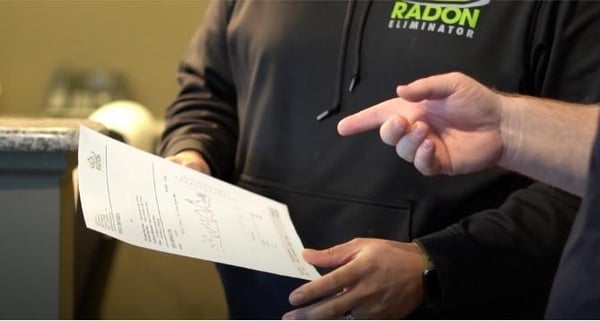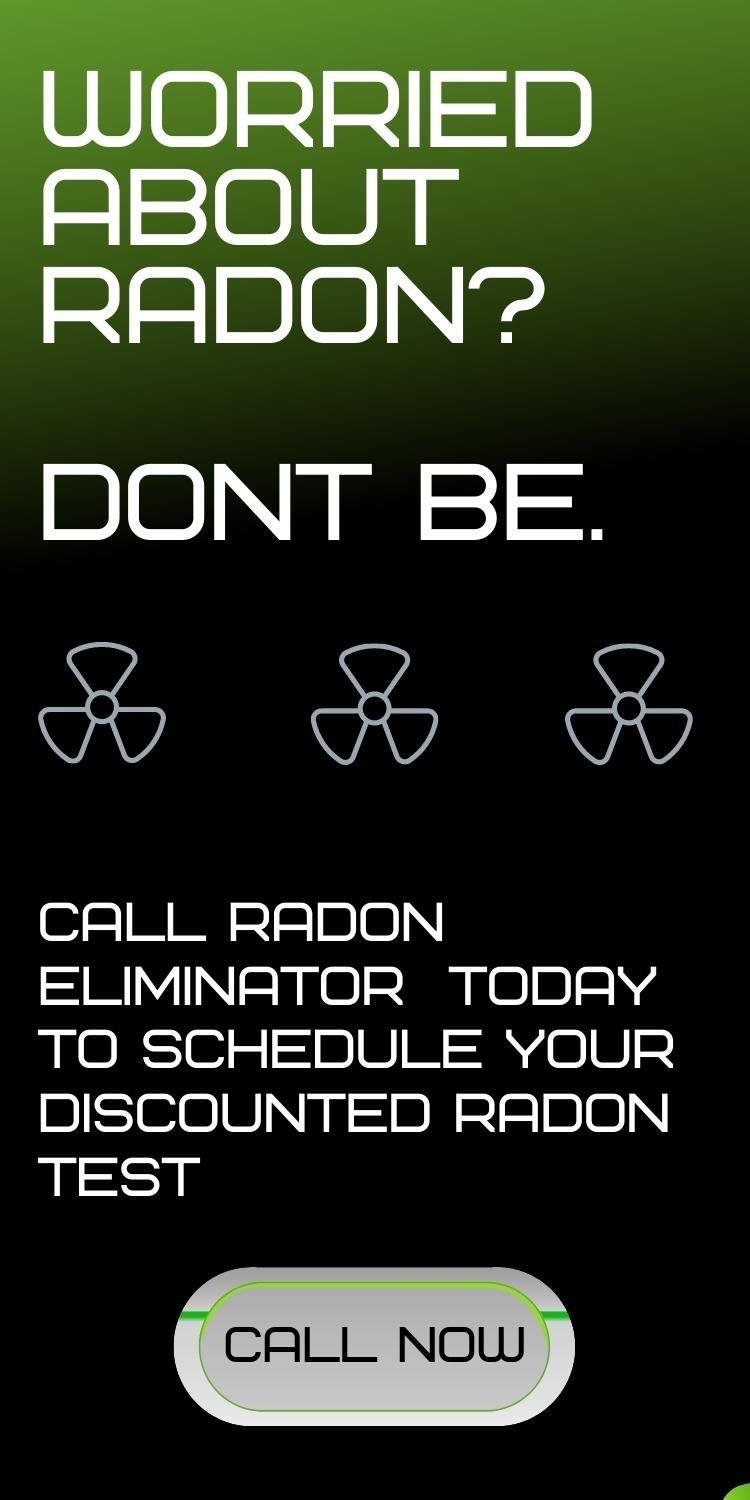If someone told you there was a chance that an odorless and colorless gas that could damage your lungs and give you lung cancer polluted the air in your home, you'd probably want to know more about it.
However, like most people, you probably haven't heard of this gas called radon.
And you likely haven't considered the impact it can have on you and your family.
In the article below, we will discuss the many reasons you should think about this naturally occurring gas.
Want more critical information about radon? Read our blog post: "6 Things Everyone Should Know About Radon."
Table of Contents
- What Is Radon?
- Why Should You Care About Radon?
- How Do I Know If I Have Elevated Levels Of Radon?
- More Ways to Take Action
- Contact Your Local Radon Professional
What Is Radon?
As we mentioned above, radon is an invisible and odorless radioactive gas created by the decay of minerals in the ground and released into the air.
If your house stands on soil with uranium, this radioactive gas can in through cracks in your foundation, sump pumps, and other openings in basement floors and walls.
You can also have radon in the groundwater, but it's not as common as radon in the air.
Since radon comes from the environment, your radon level and potential radon exposure to it depends on your location.
Different areas of the country will have different amounts of radon because of their geology, so your geologic radon potential depends on where you live.

Why Should You Care About Radon?
You should care about radon because of the adverse health effects it can cause.
When you breathe in radon, radioactive particles from radon gas get stuck in your lungs.
When these particles build up, they can cause lung cancer.
The EPA estimates about 21,000 lung cancer deaths every year in the U.S. attributed to radon poisoning.
About 2,900 of those deaths occur in people who have never smoked.
But if you smoke and your home has elevated radon levels, your risk of lung cancer goes up even more.
Your chances of cancer from radon depend on the length of exposure time to elevated levels.
The longer your exposure to unsafe radon levels, the higher your chances of getting lung cancer.
How Do I Know If I Have Elevated Levels Of Radon?
Your potential radon exposure depends on several factors, but the only way to know for sure is to test for it.
The most common radon test kits are called alpha track system kits.
There are a variety of testing kits available online and at big box stores that will measure concentrations of radon.
Many of these kits are short-term kits that can be completed in just a few days and mailed back in for analysis.
It would be best if you placed the detectors for the radon test kit in the lowest level of your home.
They should be easily accessible but unlikely to be disturbed.
Long-term detectors may stay in place for three months or longer, and then you will send the sensor back to the laboratory for analysis.
Long-term tests will give you the best results since levels of radon found in your home can fluctuate daily.
The highest radon levels typically occur on the lowest levels of your home, so that's a critical area to test.
You should also test areas where you may have poor ventilation.
Winter is one of the best times to test because it indicates normal conditions in your home when your windows are closed.

More Ways to Take Action
You can also do other things to reduce your radon exposure.
First, if you're a smoker, you should stop smoking and discourage smoking in your home.
Smoking enhances the risk of lung cancer from radon.
You can also increase airflow in your house by opening windows and using fans and vents to circulate air.
The presence of radon raises on areas with poor ventilation, so be sure to keep everything well-ventilated.
But you should know that natural ventilation in your home is only a temporary strategy to reduce radon.
Seal any cracks in your floors and walls with plaster or caulk to keep radon from seeping into your home.
It's also a good idea to contact your state radon office for a list of qualified contractors in your area.
You can also call the national radon helpline for answers to your questions.
Contact Your Local Radon Professional
If you're worried about elevated radon levels in your home, you should get it tested.
Knowing the air quality of your home will give you peace of mind and leave you breathing a little easier.
To test your potential home for radon and potentially have a radon mitigation system installed by a professional radon mitigation company, contact the qualified radon remediation contractors at Radon Eliminator.
Radon Eliminator will test your home for radon.
If your results come back high, they will install a radon mitigation system to make your new home safe to live in, all for a reasonable price.
Click the button below to schedule your Discounted Test today, and ensure you and your family's safety from high radon level exposure.





